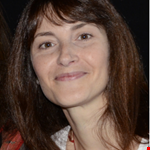
Dr Elena Antonova - I obtained the BSc in Psychology from the University College London, UK, in 2000 and the PhD in Cognitive Psychology from the Institute of Psychiatry, Psychology and Neuroscience (IoPPN), King's Collge London, UK, in 2004. I then held a number of post-doctorate research positions at the IoPPN between 2004 and 2011, including developing virtual reality fMRI-compatible analogues of well-established animal spatial memory paradigms (Morris Water Maze and Olton Octagonal Maze) as a biomarker of hippocampal function for drug development in Alzheimer's Disease, as well as investigating the neural predictors of responsiveness to CBT for psychosis, amongst others. Following a Templeton Positive Neuroscience Award as a personal fellowship for the project investigating the effect of mindfulness on sensory information gating in expert mindfulness practitioners held between 2011-2013, I transitioned to a lecturership post at the Department of Psychology, IoPPN.
In mid-June 2019, I moved to Brunel University London to take on the position of Senior Lecturer at the Division of Psychology, Department of Life Scienes, College of Health and Life Sciences, where I aim to consolidate my existing research and education expertise, as well as develop new inter-disciplinary research directions and collaborations. I will also continue my research collaborations at the IoPPN as a Visiting Researcher.
My main area of research interest and expertise is the neuroscience of mindfulness with the focus on investigating the effects of long-term mindfulness meditation practice using psychophysiology and neuroimaging methods with the application to the prevention and management of mental illness as well as promotion of mental health and wellbeing. I have been actively involved with the Mind and Life Institute since 2011 and Mind and Life Europe since 2013, organisations catalyzing inter-disciplinary scientific research into the effects of contemplative practices. In 2017 I was elected a Mind & Life Research Fellow for my contribution to contemplative science - the highest honorific recognition in my research field.
The most recent research direction is a circulation between contemplative neuroscience and AI humanoid robotics towards mitigating AI risks in collaboration with Prof. Chrystopher Nehaniv and Adaptive Systems Research Group and Royal Society Wolfson Biocomputation Research Laboratory, Centre for Computer Science and Information Research, University of Hertfordshire, where I am a Visiting Senior Research Fellow.